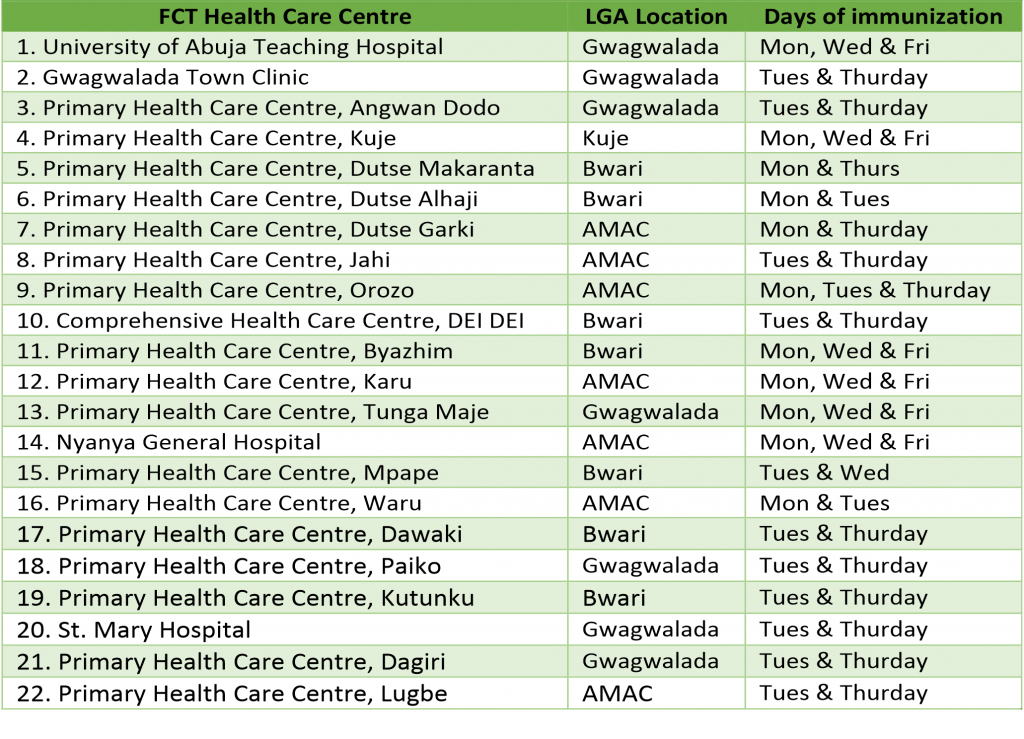CESRTA conducts training to scale up CONSA newborn screening in the Federal Capital Territory, Abuja Nigeria
Overview: The Center of Excellence for Sickle Cell Disease Research & Training (CESRTA) situated at the University of Abuja collaborates with the Federal Capital Territory (FCT) Primary Health Care Development Board (FCT-PHCB) to screen for sickle cell disease (SCD) in newborn babies attending immunization clinics in twenty (20) Primary Healthcare Centres (PHCs) in the FCT. The primary health centres are spread across the constituent area councils of the FCT. Babies identified with SCD are enrolled in the Paediatric Sickle Cell Program at the University of Abuja Teaching Hospital (UATH) Gwagwalada for comprehensive care. This work is part of the five-year funded Consortium on Newborn Screening in Africa (CONSA) program, that has the objective to develop and institute standardized screening and early intervention procedures for Sickle Cell Disease and to store and maintain relevant data in a shared registry database
To ensure efficiency of the screening program, healthcare personnel, especially nurses, community health extension workers (CHEWs) and laboratory technologists at the PHCs, have to be properly trained in key areas comprising of counselling, bio-sampling using the dried blood spot (DBS) and basic treatment for SCD at the primary care level. In addition, training on early activation of the referral process to higher level care through identification of certain clinical features is also important
Workshop outlay: This one-day workshop was attended by the Nurses and Community Health extension Workers (CHEWs) from the twenty primary health centres in the FCT participating in the program and personnel from the CESRTA. It involved power point presentations covering the training curriculum as well as a video recording showing the DBS collection procedure.
Participation: A total of 52 healthcare personnel participated in the training made up of 40 persons from the FCT PHCs and 12 persons from CESRTA. Two representatives from the State PHCB also participated in the workshop.
Scope of Workshop/Training Curriculum: The workshop treated the following topics:
-
- Dried Blood Spot (DBS) collection procedures
- SCD management at the Primary Healthcare level (using the Sickle Pan-African Consortium-SPARCo – standards of care guidelines)
- Genetic counseling
- Interactive session on the challenges and sundry matters about the newborn screening program; perspectives from the PHCs
Learning outcomes: At the end of the workshop, participants gained knowledge;
-
- on the standard operating procedures (SOP) for appropriate/qualitative collection & storage of DBS samples until retrieval for diagnosis
- on effective counseling for intending couples, would-be mothers, and parents of SCD patients, about SCD
-
- on basic treatment of SCD based on the SPARCo Standards of Care (SoC) guidelines within the context of primary healthcare level.
-
- on how to effectively communicate screening results to parents of SCD newborns and ensure prompt enrollment of such babies into the SCD management program at the tertiary hospital (UATH)
Observations & in-workshop feedback: Participants highlighted two broad challenges bordering on delays in communication/conveyance of screening results and secondly on parents not accepting positive SCD results (“state of denial”). These were extensively discussed and the various concerns were addressed. FCT PHC health personnel were educated on reasons for delayed results and measures they needed to undertake to prevent same, as well on the channels for addressing any delays. Concerning “denial states “from parents of affected babies, the Matron in charge offered insight on counselling approaches to handle that and more importantly, the workshop adopted a step-wise template for intervention in those situations with incorporation of the genetic counselling team. Clarity on the referral process for inclusion of SCD-positive babies in the paediatric program was provided.
A separate session involving the PHCs with less than the expected target (per time) of screened newborns was held, where strategies for improvement were articulated. A senior management staff from the FCT-PHCB in attendance, assured the project team of continued support from the FCT administration towards the program.
In line with the SOP for the workshop, an evaluation of the screening program in terms of quality of DBS cards for laboratory analysis, number of newborns screened, rate of enrollment of SCD newborns into the paediatric sickle cell program (UATH) will be done quarterly in order to engender greater efficiency
List of FCT PHCs with the immunization days

Some Workshop Media Mentions
About us
Research
Twitter Feeds
Copyright © 2023 CESRTA. All rights reserved.
